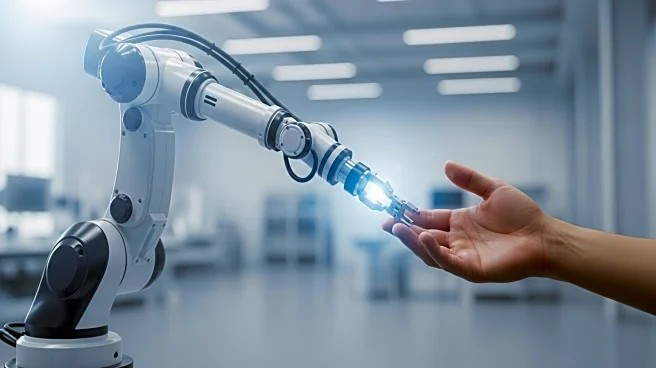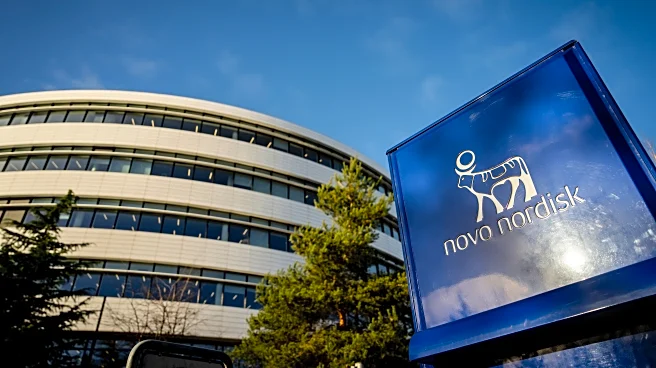What is the story about?
What's Happening?
Labor Secretary Lori Chavez-DeRemer has stated that artificial intelligence (AI) will not displace American workers but will instead create opportunities for upward mobility. In a recent interview, Chavez-DeRemer emphasized that AI is here to stay and will assist workers in transitioning to higher-paying roles. This perspective comes amid concerns from corporate executives about potential job losses in white-collar sectors due to AI advancements. The Trump administration has prioritized AI literacy and proficiency, aiming to position the U.S. as a leader in AI technology. Measures include integrating AI into education and workforce training programs, as well as establishing an AI Workforce Research Hub.
Why It's Important?
The integration of AI into the workforce has significant implications for the U.S. economy and labor market. While some experts predict job losses, particularly in entry-level white-collar positions, the Trump administration's focus on AI literacy aims to mitigate these effects by reskilling workers. This approach could help maintain employment levels and foster economic growth by enabling workers to adapt to new technologies. The administration's initiatives may also strengthen the U.S.'s competitive edge in the global AI race, potentially leading to increased innovation and investment in the sector.
What's Next?
The Trump administration plans to continue its aggressive pro-AI agenda, with further measures to track AI's impact on the labor market and expand training programs. The Labor Department has issued guidance for states to use federal funding for AI skills training, emphasizing the importance of preparing workers for the evolving job landscape. As AI technology advances, ongoing efforts to integrate AI into education and workforce development will be crucial in ensuring that American workers can thrive in an AI-driven economy.
Beyond the Headlines
The ethical and cultural implications of AI in the workforce are significant. As AI becomes more prevalent, questions about privacy, data security, and the role of human oversight in automated processes will arise. Additionally, the shift towards AI-driven work may alter traditional employment structures, challenging existing norms and necessitating new policies to protect workers' rights and ensure equitable access to opportunities.

















